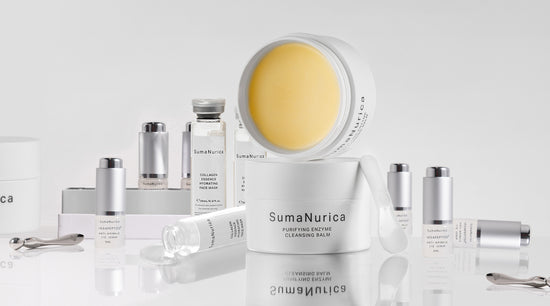The Importance Of Understanding Your Skin Type Vs. Skin Condition.
When it comes to skincare, it's essential to understand the difference between skin type and skin condition. Your skin type is determined by genetics and refers to the inherent characteristics of your skin, such as oiliness, dryness, sensitivity, or a combination of these. On the other hand, skin condition refers to temporary changes or issues in the skin, such as acne, eczema, rosacea, melasma, etc.
Understanding the difference between skin type and skin condition is crucial because different skincare products and treatments may be more effective for different skin types or conditions. So, how do you determine your skin type and any skin conditions you may be experiencing?
Determining Your Skin Type
To determine your skin type, start by paying attention to how your skin looks and feels on a daily basis. Do you have an oily T-zone and dry cheeks? Are you prone to breakouts? Do you have sensitive skin that reacts easily to skincare products and the environment? The answers to these questions can help you identify your skin type.
Another way to determine your skin type is to perform the barefaced test.
Simply wash your face and avoid using any skincare products, makeup, or lotions. After several hours, observe your skin and see how it looks and feels. Does it feel tight and dry, or is it oily and shiny? This can give you a better understanding of your skin type.Find out more about different skin types below:
What is normal skin?
Normal skin is well-balanced, with neither too much oil nor too much dryness. It has a healthy appearance and is not prone to breakouts or sensitivity.What is combination skin?
Combination skin is a mix of both oily and dry skin, with oiliness typically concentrated in the T-zone (forehead, nose, and chin) and dryness in other areas, such as the cheeks.What is oily skin?
Oily skin is characterized by excessive oil production, leading to a shiny appearance and clogged pores. It is prone to breakouts and acne.What is dry skin?
Dry skin lacks moisture and may feel tight, flaky, and itchy. It may also be more prone to fine lines and wrinkles.What is sensitive skin?
Sensitive skin is easily irritated by skincare products, fragrances, and environmental factors. It may appear red, irritated, and itchy.Identifying Skin Conditions
In addition to skin type, it's also important to identify any skin conditions you may be experiencing. Skin conditions can be caused by a variety of factors, including lifestyle, diet, environmental factors, and underlying health problems.
Common skin conditions include acne, eczema, dermatitis, rosacea, melasma, etc. If you suspect you have a skin condition, it's important to consult with a dermatologist or skincare professional - they can help you determine the cause of your skin condition and develop an appropriate treatment plan.
What is acne?
A common skin condition characterized by blackheads, whiteheads, pimples, and cysts.What is dermatitis?
An inflammation of the skin that can cause redness, itching, and flaking.What is rosacea?
A skin condition that causes redness, flushing, and visible blood vessels on the face.What is the difference between sensitive and reactive skin.
Skincare For Different Skin Types and Conditions
Once you have determined your skin type and any skin conditions you may be experiencing, you can develop an appropriate skincare regimen. Here are some general skincare tips for different skin types and conditions:Oily Skin:
Opt for oil-free and non-comedogenic products to control excess oil production. Look for products with salicylic acid, which can help unclog pores and prevent breakouts.Dry Skin:
Use a gentle cleanser and a moisturizer to hydrate and nourish your skin. Look for products with hyaluronic acid, which can help lock in moisture.Sensitive Skin:
Choose products that are gentle and free of fragrances, alcohol, and other potential irritants. Look for products with chamomile and aloe vera, which can soothe and calm sensitive skin.Acne-Prone Skin:
Use a gentle cleanser and a product with benzoyl peroxide or salicylic acid to help unclog pores and prevent breakouts. Avoid using products that can dry out your skin, as this can make acne worse.Eczema-Prone Skin:
Use a gentle cleanser and a moisturizer to hydrate and nourish your skin. Look for products with ceramides, which can help strengthen the skin barrier and prevent flare-ups.Combination Skin: A mix of two or more skin types.
Exfoliate regularly to remove dead skin cells and layer your serums/moisturizers so you can specifically target your different areas of concern.Experience The New Era Of Skin
Join the skincare revolution led by SumaNurica. Using world-first biotechnology, we aim to protect and repair skin with our products that address cosmetic concerns and help you to look as young as you feel.
Want to start your SumaNurica skincare journey? Shop our entire SumaNurica range here.
Loved learning about the world of skincare? Find more articles like this one in our learning center here.
Question not answered? Or want to speak to one of our friendly skincare experts? Head to our live chat in the bottom right corner and a skin specialist will be there to assist with all your skincare questions and concerns.







